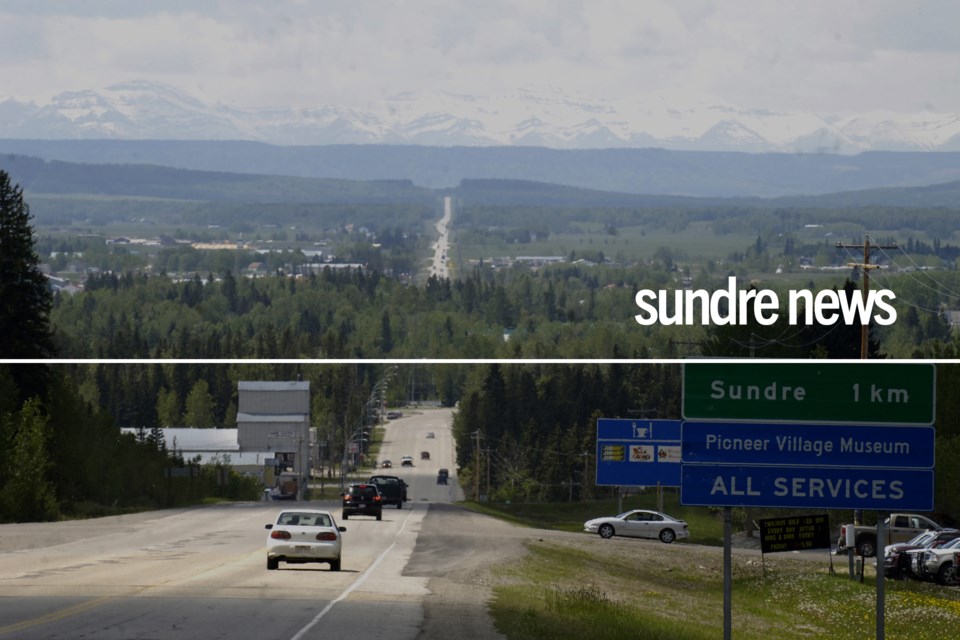SUNDRE — Rolling back nurses’ salaries as proposed by the provincial government could potentially trigger unintended consequences in a health-care system already struggling to cope with staff shortages, a local physician said.
“For the first time ever in my career, the Sundre Hospital Futures Committee has put an ad out saying ‘We’re hiring at the Sundre hospital’,” said Dr. Michelle Warren, adding she was asked to display the job posting at the Moose & Squirrel Medical Clinic, which she owns and operates with husband and colleague Dr. Rob Warren.
Warren said she has never throughout her time in Sundre since 1999 seen anything like that.
“Our nurses in Sundre work their buns off. And they’re always short staffed,” said Warren.
“Yet they give up coffee breaks, they work overtime, they come in and pull double shifts because it needs to be done. The hospital would not function without everybody that works there.”
Pointing to the situation at rural hospitals such as the facility in Rocky Mountain House, she said the temporary closure of some acute care beds was due not only to a lack of doctors but available staff as well.
Recognizing the uphill financial battle Alberta faces with a deficit that was already increasing prior to the pandemic and which has since grown much more, Warren said health-care costs are also rising as a direct result of a larger population, which translates to greater use of health-care services and therefore expenses.
“(And) as our population increases, there is no corresponding increased growth in the health-care budget,” she said.
“In the absence of revenue to pay for it, you’re going to have to decrease expenditures somehow,” she said.
Revenue side of the equation
However, expenditures are only a part of the larger equation, she said, adding another approach is to consider options to increase revenue. In other provinces, for example, there are health-care premiums people pay to help cover that cost.
“In Alberta, it’s completely free,” she said.
In the past, the province did have a health-care premium that required Albertans to pay a monthly fee of $44 for individuals or $88 for families. That program was stopped in 2009.
“We’ve got rising costs and no comparative rising income,” Warren said, adding there is no easy answer.
“For me, I think it is imperative that my rural parents have access to quality health care.”
Saying that people who choose to live in a rural area don’t deserve access to quality health care is unacceptable, she said.
Preventative care
As the province continues to emerge from the worst of the pandemic, the doctor predicts there will be a re-evaluation of how virtual care will be delivered in rural communities with a focus on designing a system that maintains continuity of care. That in turn will translate to fewer emergency room or hospital visits and improved health outcomes all around, which in the long-term will cost the health-care system significantly less money, she said.
“Preventative care costs way less than acute care does,” she said.
Yet comparatively very little is actually spent on primary care, which goes a long way to keeping people out of the hospital and emergency room in the first place, she added.
Preventative care also requires a network of support staff, she said.
“Everything from the janitorial and cleaning staff, who we can’t live without — they do an amazing job — to the nurses,” she said.
From LPNs and RNs to health-care aides, there is already a shortage, she said.
And rolling their salaries back is unlikely to inspire new graduates to fill those gaps, she added.
Competitive market
Drawing from her own personal past experience, Warren said she once had an opportunity to work in Invermere, B.C. and learned that no shortage of Alberta student graduates intended to move to the valley. And that was long before the provincial government in Alberta proposed cutting nurses’ salaries.
“Other jurisdictions are desperately needing help as well. Health care is a free market,” she said, later adding it’s also competitive.
Of course money isn’t necessarily the only factor new nurses consider when looking for a job, but also how they can expect to be treated, whether they feel respected as well as valued, and their overall job satisfaction, she said.
Asked how the provincial government praising nurses as heroes throughout the pandemic reconciles with rolling back their salaries, Warren said, “They (nurses) need the support — not just words of support, but they actually need to be shown support.”
She cautions the government’s approach to balancing the budget no matter what requires careful consideration of unintended consequences, and said elected officials should listen to the concerns nurses are raising.
“As a leader, you need to hear from people when you’re making a mistake,” she said, adding people must also be able to feel safe when speaking up.
“That’s important as well.”
When the Alberta government suddenly ended its agreement with the Alberta Medical Association — which is not a union like the Alberta Union of Provincial Employees that among other workers negotiates on behalf of nurses — physicians’ warnings about the rough road ahead went unheeded, she said.
“We saw what was going to happen, we predicted it, they did it anyway, and it happened,” she said.
“What we’re living with right now, is a direct consequence of those actions in 2020.”



